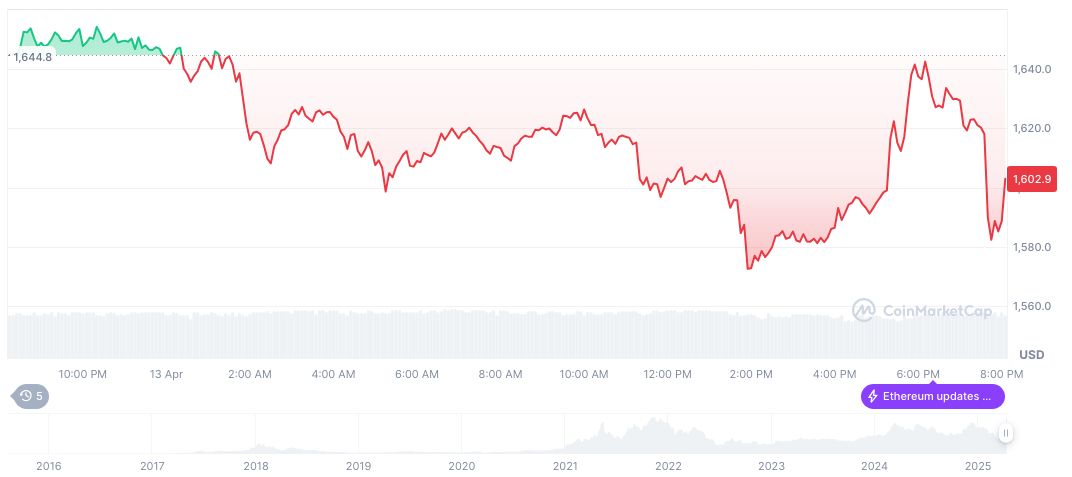- Main event: SEC delays decision on Grayscale’s Ethereum ETF staking.
- Staking function impact on ETF appeal and competitiveness.
- Potential increase in ETH staking participation and market yield.
The U.S. Securities and Exchange Commission has delayed its decision on Grayscale’s proposal to include staking in its spot Ethereum Exchange-Traded Fund, as reported by PANews on April 14.
The delay emphasizes the SEC’s careful consideration of integrating staking functions within Ethereum ETFs. If approved, it could expand the ETF’s benefits, making them more attractive compared to Bitcoin products.
SEC’s Deliberation on Ethereum ETF Staking Proposal
Grayscale Investments, NYSE Arca, and Coinbase Custody are actively involved in the proposal. Coinbase Custody manages the Ethereum holdings, ensuring adherence to regulatory standards without pooling external assets. The SEC, under Acting Chair Mark Uyeda, oversees the review with Commissioner Hester Peirce part of their newly established Crypto Task Force.
Introducing staking in the ETF aims to enhance investor returns, broadening appeal among institutional and retail participants. Approval could lead to significant fund inflows, affecting market dynamics, and increasing Ethereum staking rates.
“Without staking, these ETFs lose their competitiveness compared to Bitcoin-linked products, which benefit from more developed passive yield regimes” – Robert Mitchnick, Head of Digital Assets, BlackRock.
Ethereum Market Dynamics and Potential Impact of Staking
Did you know? Ethereum’s potential staking integration into ETFs could mirror the shift seen with Bitcoin-linked products, representing a pivotal moment for institutional crypto adoption.
Ethereum (ETH), valued at $1,671.57, holds a market cap of $201.74 billion and dominates 7.48% of the market, reports CoinMarketCap. Ethereum’s trading volume surged 44.75%, totaling $16.96 billion in 24 hours. ETH saw a 5.60% price jump today but has dropped 48.25% over 90 days.

Experts from Coincu outline that if staking is approved, it could significantly alter the regulatory landscape, affecting financial products. Historical ETF developments suggest a potential boost in institutional confidence and technological advancements related to Ethereum and other staking assets.























